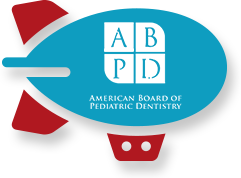How Parents can Prepare for Common Dental Emergencies
May 10th, 2018
Life can’t be completely mapped out, but parents can take some practical steps to prepare for some common dental emergencies.
Fractured Tooth
Kids play rough, and their teeth sometimes bear the brunt of their actions. If your child fractures a tooth, then gather what fragments and store them in a clean container of cool water, saliva, or milk. It is important that you visit the dentist immediately to prevent infection and other complications that are brought on by chipped teeth. Your dentist will be able to repair your child’s tooth, or fix it with a crown.
How to Prepare:
A large amount of fractured teeth are sustained as the result of a sports injury. If your child plays contact sports, be sure they wear a mouth guard that protects their teeth.
Knocked Out Permanent Tooth
If possible, find the tooth. Handle the tooth by the crown, and be careful not to touch the root portion. You may rinse the tooth but DO NOT clean or handle the tooth excessively. Inspect the tooth for fractures. If it is sound, try to reinsert it in its socket. Hold the tooth in place by gently biting on a gauze or clean cloth. If you cannot reinsert the tooth, place the tooth in a cup containing the saliva of the person that lost it, or use milk, but NOT water. The tooth may also be carried in the mouth beside the cheek. The person who lost their tooth must see a dentist IMMEDIATELY! Time is a critical factor in saving the tooth.
Ongoing Toothache
If your child has a toothache, then have them rinse their mouth with warm water to ease the pain. Persistent toothaches can indicate more serious problems that need to be observed by a dental professional. If the pain persists for more than 48 hours, then see your dentist as soon as you can.
How to Prepare:
Toothaches are often the result of neglecting a proper oral health routine. Be sure that your child drinks plenty of water, and brushes for two minutes at a time, twice per day. They should also floss once daily, and clean the area below the gum line.
Visit Out Dental Office
If your child has lost their teeth from serious accidents like a head injury or broken jaw, then visit the hospital before you see the dentist. It’s absolutely imperative that you care for the more serious injury first. However, if their oral emergency is not immediately threatening their overall well-being, then call our office. We are equipped to deal with a litany of oral emergencies and will be able to help get your child’s smile back in working order.




